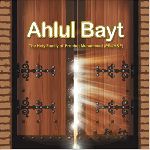Various Articles
Secrets of the Hajj
- Published at
-
- Author:
- Shaykh Husain Mazaheri

The entire journey of Hajj is a spirituality excursion that covers three stages: The First Stage: Cutting oft affinity from all things with the exception of Allah in order to reach to Allah. The Second Stage: Continuing towards Allah and strengthening the alliance (with Him), until one reaches to Allah and (the true) essence of worship.
ZAKAT-E-FITRA - Resources/ Articles
- Published at
-
- Source:
- www.duas.org
 The numbered rulings are according to the Fatawa of Ayatullah Al-Udhma Seyyid Ali Al-Husaini Seestani, Dama Dhilluhu.
(The rulings in brackets are according to the Fatawa of Ayatullah Al-Udhma Seyyid Abulqassim Al-Khui, Ridhwanullahi Alayhi)
The numbered rulings are according to the Fatawa of Ayatullah Al-Udhma Seyyid Ali Al-Husaini Seestani, Dama Dhilluhu.
(The rulings in brackets are according to the Fatawa of Ayatullah Al-Udhma Seyyid Abulqassim Al-Khui, Ridhwanullahi Alayhi)
Eighteen Reasons Why A Muslim Fasts
- Published at
-
- Author:
- Al-Shia.org
 Ramadhan
Every year the month of Ramadhan comes and goes; every year we fast, yet without proper appreciation of the potentials of character building that the fasts hold for us. We find ourselves as spiritually backwards after the fast are over as when the month began. In fact our lack of knowledge of the real objectives of fasts often tends to produce an adverse effect in us, for, as is well known, the best of medicines could have ill effects if not taken in accordance with the physician"s directives and instructions.
Ramadhan
Every year the month of Ramadhan comes and goes; every year we fast, yet without proper appreciation of the potentials of character building that the fasts hold for us. We find ourselves as spiritually backwards after the fast are over as when the month began. In fact our lack of knowledge of the real objectives of fasts often tends to produce an adverse effect in us, for, as is well known, the best of medicines could have ill effects if not taken in accordance with the physician"s directives and instructions.
The Fundamentals of Shia'ism
- Published at
-
- Author:
- Allamah Shaykh Muhammad Husayn al-Kashif al-Ghita
 Before we deal with the roots and the articles of faith in detail, we may divide our study of the Shi'a religion according to five principles:
Before we deal with the roots and the articles of faith in detail, we may divide our study of the Shi'a religion according to five principles:
Fiqh and Ijtihad in Shia'ism
- Published at
 It is wajib (obligatory) for Muslims to study everything which is necessary for the physical and spiritual well being and development of the Muslim community. The waajibaat is known as wajib e kifaii. This means that the obligation is on the community as a whole; but ...
It is wajib (obligatory) for Muslims to study everything which is necessary for the physical and spiritual well being and development of the Muslim community. The waajibaat is known as wajib e kifaii. This means that the obligation is on the community as a whole; but ...
The Religion of Human Rights and Other Religions
- Published at
-
- Author:
- Dr. S. Bahmanpour
 The concept I am trying to address in this paper is a dilemma faced by most people who are faithful to God and at the same time want to make sure that the basic rights of human individuals are safeguarded against those who have the power and the position to violate it. The paper is not seeking to provide an answer to the dilemma, but to state it as clearly as possible.
The concept I am trying to address in this paper is a dilemma faced by most people who are faithful to God and at the same time want to make sure that the basic rights of human individuals are safeguarded against those who have the power and the position to violate it. The paper is not seeking to provide an answer to the dilemma, but to state it as clearly as possible.
Holy Prophet's Sending Salutations to Ahl al-Bayt (A.S.)
- Published at
 Abu al-Hamra, the retainer of the Holy Prophet (S.A.W.): When dawn broke, the Holy Prophet (S.A.W.) would pass by the house of Ali (A.S.) and Fatima (A.S.) and say: Greetings to you, O Ahl al-Bayt; prayer,
Abu al-Hamra, the retainer of the Holy Prophet (S.A.W.): When dawn broke, the Holy Prophet (S.A.W.) would pass by the house of Ali (A.S.) and Fatima (A.S.) and say: Greetings to you, O Ahl al-Bayt; prayer,
Brief History of Jurisprudence and Jurisprudents
- Published at
-
- Author:
- Martyr Ayatullah Murtada Mutahhari
 As we mentioned in the previous lessons, one of the preparations for learning about any field of knowledge is to pay attention to the famous personalities of that field, the views and ideas of whom were important, and to its important books.
As we mentioned in the previous lessons, one of the preparations for learning about any field of knowledge is to pay attention to the famous personalities of that field, the views and ideas of whom were important, and to its important books.
The Divine, Prophet and Imams' Rights in Islam
- Published at
 Rights vary from one to another according to values of favors. A friend has his own familiar rights that are a degree lower than these of the affectionate brother who joins the tie of relation to the tie of kindness. The right of the brother, in a like fashion, comes after that of parents, because of their superior favors to sons.
Rights vary from one to another according to values of favors. A friend has his own familiar rights that are a degree lower than these of the affectionate brother who joins the tie of relation to the tie of kindness. The right of the brother, in a like fashion, comes after that of parents, because of their superior favors to sons.
Imam al-Baqir (A.S.) Proclaimed Islamic Jurisprudence
- Published at
 As for the jurisprudence of the members of the House (ahl al-Bayt), peace be on them, most of it was taken from the two Ima`ms al-Ba`qir and his son al-Sa`diq, peace be on them. The Ima`mi jurisprudence encyclopedias - such as al-Hada'iq, al-Jawa`hir, and Mustamsak al-'Urwat al-Withqa`- are full of the traditions reported on their authority.
As for the jurisprudence of the members of the House (ahl al-Bayt), peace be on them, most of it was taken from the two Ima`ms al-Ba`qir and his son al-Sa`diq, peace be on them. The Ima`mi jurisprudence encyclopedias - such as al-Hada'iq, al-Jawa`hir, and Mustamsak al-'Urwat al-Withqa`- are full of the traditions reported on their authority.
Difference Between al-Shubha al-Ḥukmīyyah and al-Shubha al-Mawḍū’īyyah
- Published at
-
- Author:
- Sayyid Muḥammad Ṣādiq ‘Alam al-Huda, Translated by Ali Imran
- Source:
- www.iqraonline.net
 Jurists and scholars of legal theory divide uncertainty into two 1) those that concern a law (al-shubha al-ḥukmīyyah), and 2) those that concern the subject or an instance of a law (al-shubha al-mawḍū’īyyah). Perhaps the simplest way these two uncertainties can be explained is through the following three perspectives
Jurists and scholars of legal theory divide uncertainty into two 1) those that concern a law (al-shubha al-ḥukmīyyah), and 2) those that concern the subject or an instance of a law (al-shubha al-mawḍū’īyyah). Perhaps the simplest way these two uncertainties can be explained is through the following three perspectives
Diversity In The Topics of Fiqh
- Published at
-
- Author:
- Imam Reza Network
 If we study the subjects of FIQH in detail, we find that every one of them is peculiar and singular in itself. There may seem to be some similarity at , first glance, but a deeper study reveals a different aspect contained. It meets with the requirements of all walks of human life.
If we study the subjects of FIQH in detail, we find that every one of them is peculiar and singular in itself. There may seem to be some similarity at , first glance, but a deeper study reveals a different aspect contained. It meets with the requirements of all walks of human life.
What is Temporary marriage?
- Published at
-
- Author:
- Al-Tijani Al-Samawi
- Source:
- www.imamreza.net
 One of the most dangerous problems that destroy human societies is the problem of sex. As it is well known, sex is the basic factor that makes life continue as willed by Allah the Almighty Who has made masculinity and femininity in everything - man, animals, plants…etc.
One of the most dangerous problems that destroy human societies is the problem of sex. As it is well known, sex is the basic factor that makes life continue as willed by Allah the Almighty Who has made masculinity and femininity in everything - man, animals, plants…etc.
The Bible & Quran Say: DO NOT EAT PORK
- Published at
-
- Source:
- www.en.islamhouse.com
 Both the Bible and Qur’an prohibit the eating of pork. Muslims are aware of this prohibition and observe it strictly. However, most readers of the Bible say they do not know where they can find this in the Bible. In the book of Leviticus, Chapter 11, v. 7, it is recorded that God declares the pig to be unclean for believers. Then, in verse 8, God says: ‘You must not eat their meat or touch their carcasses; they are unclean for you’. This command is repeated in Deuteronomy 14;7-8. Then, in Isaiah 65:2-4, and 66:17, God issues a stern warning against those who eat pork.
Both the Bible and Qur’an prohibit the eating of pork. Muslims are aware of this prohibition and observe it strictly. However, most readers of the Bible say they do not know where they can find this in the Bible. In the book of Leviticus, Chapter 11, v. 7, it is recorded that God declares the pig to be unclean for believers. Then, in verse 8, God says: ‘You must not eat their meat or touch their carcasses; they are unclean for you’. This command is repeated in Deuteronomy 14;7-8. Then, in Isaiah 65:2-4, and 66:17, God issues a stern warning against those who eat pork.
Are there any ahadith to prove mentioning Imam Ali in the Adhaan is Mustahab?
- Published at
-
- Author:
- Sheikh Mansour Leghaei
- Source:
- http://www.askthesheikh.com
 Our jurists are unanimous that the third testimony (Ashhado Anna Aliyan Waliullah) is NOT a part of Azan or Eqama. However, there are narrations both in Shi’a and Sunni books of Hadith confirming that the testimony to the prophecy of the Prophet (p) must be followed by the testimony to the Walayat of Imam Ali. Therefore, some of our renowned scholars have suggested that based on those narrations one may suggest that the third testimony is a recommended part of Azan. The late Allamah al-Majlesi says: “It is possible to claim that the third testimony is one of the recommended parts of Azan, as al-Sheikh (al-Tousi), al-Allamah (al-Hilli), and al-Shahid (al-Awwal) and others have testified that there are narrations about it.” (Behar, vol.81 p.111)
Our jurists are unanimous that the third testimony (Ashhado Anna Aliyan Waliullah) is NOT a part of Azan or Eqama. However, there are narrations both in Shi’a and Sunni books of Hadith confirming that the testimony to the prophecy of the Prophet (p) must be followed by the testimony to the Walayat of Imam Ali. Therefore, some of our renowned scholars have suggested that based on those narrations one may suggest that the third testimony is a recommended part of Azan. The late Allamah al-Majlesi says: “It is possible to claim that the third testimony is one of the recommended parts of Azan, as al-Sheikh (al-Tousi), al-Allamah (al-Hilli), and al-Shahid (al-Awwal) and others have testified that there are narrations about it.” (Behar, vol.81 p.111)
Why combine Namaze Zohr-Asr and Maghrib-Isha?
- Published at
-
- Source:
- http://www.ezsoftech.com/akram/namaz.asp
 Some people ask why shia pray Namaze Zohr and Namaze Asr together, Namaze Maghrib and Namaze Isha together, while majority of Muslims are praying these Namazes separately and the name of every Namaz is different?
To reply to this question, we should put forward our principles in all our religious matters that we are following what exactly the Prophet Mohammed (S.A.W.) was doing. In our Namaz, how to pray Namaz, the timings of Namaz, and preparation for Namaz e.g. Wazu etc.
Some people ask why shia pray Namaze Zohr and Namaze Asr together, Namaze Maghrib and Namaze Isha together, while majority of Muslims are praying these Namazes separately and the name of every Namaz is different?
To reply to this question, we should put forward our principles in all our religious matters that we are following what exactly the Prophet Mohammed (S.A.W.) was doing. In our Namaz, how to pray Namaz, the timings of Namaz, and preparation for Namaz e.g. Wazu etc.
The Meanings, Philosophy and Dimensions of Worship (ibadah)
- Published at
-
- Author:
- Muhsin Qara’ati
 Worship {‘ibadah} means the expression of abasement {dhillah}, the highest form of humility and homage, before God. As to its importance, it is enough to state that worship is the purpose behind the creation of all beings and the mission {bi‘thah} of the prophets (‘a) (the creational world {‘alam at-takwin} and the legislative world {‘alam at-tashri‘}, respectively). God says:
Worship {‘ibadah} means the expression of abasement {dhillah}, the highest form of humility and homage, before God. As to its importance, it is enough to state that worship is the purpose behind the creation of all beings and the mission {bi‘thah} of the prophets (‘a) (the creational world {‘alam at-takwin} and the legislative world {‘alam at-tashri‘}, respectively). God says:
Sources of Islamic Law
- Published at
-
- Author:
- Dr Muhammad Husayni Behishti and Dr Muhammad Jawad Bahonar
 Law is a body of definite rules and regulations which have the force and authority recognized socially, and which determine the rights, obligations, limits and responsibilities of everyone living in a particular territory. All, whether high or low, have to abide by these rules and regulations and to accept the consequences of violating them.
Law is a body of definite rules and regulations which have the force and authority recognized socially, and which determine the rights, obligations, limits and responsibilities of everyone living in a particular territory. All, whether high or low, have to abide by these rules and regulations and to accept the consequences of violating them.
Some Definitions for Soul
- Published at
-
- Author:
- Sayyid Saeed Akhtar Rizvi
 Al-'Akhirah: The next (world), the (life) hereafter. Its opppsites are al-'ula (the first world) and ad-dunya (the nearer world), both of which refer to this world in which we presently live. Allah says: “All praise is due to Him in the first (life) and the hereafter, and His is the Judgement, and to Him you shall be brought back.” (Qur'an 28:70).
Al-'Akhirah: The next (world), the (life) hereafter. Its opppsites are al-'ula (the first world) and ad-dunya (the nearer world), both of which refer to this world in which we presently live. Allah says: “All praise is due to Him in the first (life) and the hereafter, and His is the Judgement, and to Him you shall be brought back.” (Qur'an 28:70).
Superiority of Islamic Laws
- Published at
-
- Author:
- Muhammad Taqi Misbah Yazdi
 Undoubtedly, the above two interpretations of justice - which are cited as an example - are in total conflict and disharmony with each other in practice. They seem to be intolerant, inconsistent and discordant with the divine laws and monotheistic beliefs. For example, we have a set of laws in Islam which, according to our ideological principles, are the best and most beneficial laws for society and certainly concordant with justice. However, these laws are unacceptable to many people in the world who regard them as unjust and oppressive.
Undoubtedly, the above two interpretations of justice - which are cited as an example - are in total conflict and disharmony with each other in practice. They seem to be intolerant, inconsistent and discordant with the divine laws and monotheistic beliefs. For example, we have a set of laws in Islam which, according to our ideological principles, are the best and most beneficial laws for society and certainly concordant with justice. However, these laws are unacceptable to many people in the world who regard them as unjust and oppressive.


